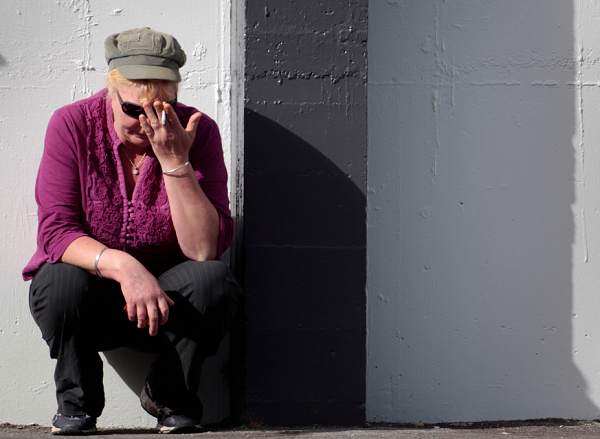How To Treat Depression: Could Sitting Up Straight With Good Posture Be A Cure?

More than 40 million U.S. adults suffer from anxiety and depression. Although many of the disorders that stem from anxiety and depression are treatable, only about a third of people struggling with mental health issues actually receive treatment, according to the National Institute of Mental Health. However, a new study said many of depression’s symptoms could be combated by simply having good posture.
Researchers from the University of Auckland discovered a link between posture and mood after results from a screening test found that people who slouched and drooped their shoulders while sitting down were more likely to feel depressed compared to those who sat up straight, Psychology Today reported Monday. The study analyzed 61 participants, some of whom suffered from mild to moderate depression.
During the study, participants were randomly assigned to upright posture groups or usual-posture groups and were forced to remain in the position with the help of psychotherapy tape placed on their shoulders and backs. While sitting, participants were instructed to give a five-minute speech, count backward from 1,022 and filled out questionnaires that measured mood symptoms.
Researchers found participants with mild to moderate symptoms of depression who were forced to sit upright experienced a reduction and fatigue and increase of enthusiasm over a short time compared to those who were allowed to sit in a slumped-over manner.
“These studies suggest that, compared to sitting in a slumped position, sitting upright can make you feel more proud after a success, increase your persistence at an unsolvable task, and make you feel more confident in your thoughts,” Dr. Elizabeth Broadbent, one of the authors of the study and an associate professor of health psychology at the University of Auckland, told Psychology Today.
People who were forced to sit upright also managed to speak more words during their speeches and used less first-person singular pronouns like “me” or "I,” which Broadbent said suggested more energy, less negative mood and less self-focusing.
The full study is set to be published in the March 2017 issue of the Journal of Behavior Therapy and Experimental Psychiatry.
A study released in 2014 seems to be in line with the University of Auckland's latest findings. The study published in Health Psychology found that stress levels, self-esteem and overall mood improved almost instantly when people sat up straight.
© Copyright IBTimes 2024. All rights reserved.






















